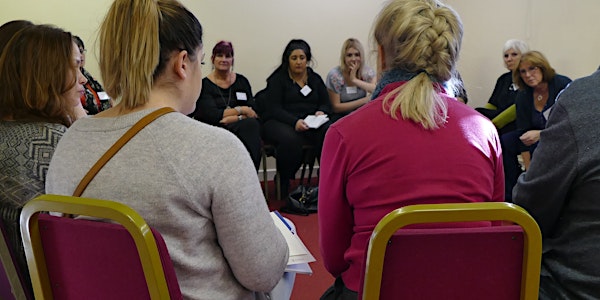
Systems Centred Theory (SCT®) - A Different Kind of Systems Theory and Interpersonal Practice - May 2019
Date and time
Location
Bridge 5 Mill
22a Beswick Street Ancoats Manchester M4 7HR United KingdomDescription
Research shows that building the working alliance is central to successful social work, yet is sometimes difficult to achieve. This workshop sets out to develop participants’ skills in conducting purposeful social work conversations and managing conflict.
The skills have their basis in Yvonne Agazarian’s Theory of Living Human Systems and the Systems-Centered (SCT®) methods that are built on it. We will introduce the theory and put the methods into practice during the day. Participants will learn the methods and experience their impact through work with each other and the whole group.
We aim to make the day enjoyable, companionable and fun. We will provide refreshments throughout the day and a vegetarian lunch.
This workshop is suitable for social workers and social work students working with service users, and also for managers engaged in supervision.
Presenters
Juliet Koprowska is author of Communication and Interpersonal Skills in Social Work (2014, 4thedition), and taught on social work programmes at the University of York from 1995-2018. She has a long training in Systems-Centered work, co-ordinates the annual SCT training week at the University of York and co-runs SCT training groups. She co-edits the Journal of Social Work Practice, and is Chair of the GAPS Board of Trustees.
Dr Ray Haddock is a licensed Systems-Centered practitioner and trainer and has led SCT training groups for many years in the UK, Europe and the USA. He is also a consultant medical psychotherapist with more than 25 years’ experience in the NHS, using SCT to inform his psychotherapeutic practice with individuals and groups, and in the teaching and supervision of psychiatric trainees.
Organised by
GAPS is a registered charity promoting relationship-based approaches, and psychodynamic and systemic thinking in social work. We receive an income from our ownership of the Journal of Social Work Practice which we use to fund activities for front-line social work practitioners and managers – such as one-day workshops and seminars, as well as our annual essay award for social work practitioners and students.
In 1980s, a group of social workers interested in working with psychodynamic ideas established GAPS (Group for the Advancement of Psychodynamics and Psychotherapy in Social Work) and the Journal of Social Work Practice. Since that time, GAPS has promoted the importance of relationship-based approaches in social work, and therapeutic, psychodynamic and systemic perspectives – perspectives that are central to the editorial policy of the Journal of Social Work Practice, which is owned by the GAPS membership.
Journal of Social Work PracticeThis ISI ranked, refereed Journal publishes four issues each year and, as such, it is one of the few social work journals that is centrally concerned with promoting the importance of working therapeutically with the children and adults. The Journal has a wide international readership and editorial correspondents, and attracts regular contributions from abroad. Every issue includes papers that are drawn from a wide spectrum of therapeutic interest, including book reviews, commentaries and conceptual themes that explore psychodynamic and therapeutic ideas and ways of working. Also, the Journal regularly publishes special editions where the focus is on specific themes - such as the importance of relationship-based approaches; the importance and impact of defences in social work; work with children; work with adults; etc. The Journal is published and distributed by Taylor and Francis; members are sent four copies of the Journal a year, and can also access a range of other benefits and resources.
If you have a question or would like more information about GAPS or our events, please get in contact with the Project Co-ordinator, Hannah Pepper by email hannahpepper@gaps.org.uk or by phone 07714 237107